Photographs: Courtesy: Renault Swaraj Baggonkar in Mumbai
Marc Nassif watches an audio clip every morning that encapsulates the experience of the owners of Renault's latest premium offering, Fluence. The managing director of Renault India spends 15 minutes to an hour watching this clip to understand the nuances of the Indian consumer.
Nassif has a good reason to go back to the drawing board. After a disastrous debut in 2007, when it launched the no-frills Logan sedan in collaboration with Mahindra & Mahindra (M&M), it took the French carmaker four years to shed its low-cost image and reposition itself as a serious player in the premium segment.
The result: The stylish Fluence with an entry price of Rs 12.99 lakh more than two-and a half times the price of Logan or Verito, as it has been named by M&M after it bought Renault's stake in the joint venture.
...
How Renault plans to capture the Indian market
Photographs: Courtesy, Renault
The result: The stylish Fluence with an entry price of Rs 12.99 lakh more than two-and a half times the price of Logan or Verito, as it has been named by M&M after it bought Renault's stake in the joint venture.
The initial response has taken the company's senior management by surprise. Fluence, which is competing with Honda's Civic, Chevrolet's Cruze and Volkswagen Jetta, sold 500 units in two months against the expected 400 units.
The Fluence segment cars that are priced Rs 13-15 lakh witnessed total sales of about 50,000 units last year, a paltry 2.5 per cent of the total Indian car market. Compact hatchbacks, which constitute 75-80 per cent of the market, are the dominant segment.
...
How Renault plans to capture the Indian market
Photographs: Jacky Naegelen/Reuters
Chairman and CEO Carlos Ghosn knows that volumes and growth in the premium sedan category are much lower in India, compared to some western countries. But still Renault wants to wear the newly-acquired premium tag on its sleeve.
In fact, even for its new compact car to be launched in January, it is going for a premium positioning than Maruti and Tata Motors. The former has a lion's share in the Rs 2.5 -4 lakh segment.
Renault's offering will be priced at Rs 4-5 lakh pitting it directly against Maruti's Swift, Hyundai's i20 and Volkswagen Polo.
"Yes, we will position ourselves at the premium end of the market. This is likely to lead to repeat customers later. We want to be able to offer the same kind of premium experience to our customers, whether he is spending Rs 5 or 15 lakh on a Renault product," says Nassif.
...
How Renault plans to capture the Indian market
Photographs: Cesar Ferrari/Reuters
Renault's top-down strategy for the Indian market is no different from say a Volkswagen which first launched Skoda followed by the Jetta and Passat. It was only after these launches that Volkswagen went in for Polo and the Vento sedan.
"The high-end models act as a launching pad for the brand. This paves the way for smarter penetration into relatively unexplored markets such as India for any alien automotive brand. Renault spoke about five launches in India which are evenly spaced out over 18 months. This period will give the company enough breathing space for expansion at later stages", says a Chennai-based automotive expert.
Renault's forthcoming launches include Koleos a crossover between a car and an SUV expected to be priced at around Rs 18-20 lakh followed by the compact car in January.
By the middle of next year, Renault will launch the SUV Duster which will fight against its former partner, Mahindra, and Tata SUVs under Rs 10 lakh. The French company hasn't announced details of the fifth model yet.
...
How Renault plans to capture the Indian market
Image: Interior view of FluenceDespite the four year gap, when Renault's brand presence took a knock due to lack of demand for Logan and large capacities of its joint factory at Nashik remaining unused, company officials believe that the launch of Fluence is also a relaunch of the Renault brand.
"That was a difficult time with Mahindra. We are not ashamed of what we have done. We learnt many lessons from it. A brand exists through its product. Logan itself is a brand while M&M-Renault was not a brand.
We were in the middle of a turmoil the slowdown in the country, weakening demand everything happened at the same time. We wanted a sustainable future beyond Logan. We have to continue this brand building which has been started from scratch", added Nassif.
...
How Renault plans to capture the Indian market
Photographs: Srdjan Zivulovic/Reuters
The caution is understandable. Renault has gone through at least two failed marriages in India in the past. Apart from M&M, the company's plan to make an ultra-low cost car in partnership with the Bajaj Group also fell through.
The original plan was that Renault will bring in the technology and Bajaj the platform, and both would jointly sell the car. But talks fell through.
So Renault is forced to go on a solo ride in India. Like several overseas markets, Renault and Nissan are closely formulating their plans together in India as well.
...
How Renault plans to capture the Indian market
Image: Renault car factoryPhotographs: Reuters/Charles Platiau
The two companies in India share manufacturing facility, model platforms, engines and transmissions and even components.
"Our new compact car will use the same engine which Nissan uses for its Micra. We assemble them at our Chennai facility and will gradually move to manufacturing them there later", says Nassif. Local manufacturing results in lower cost.
While Nissan exports four out of every five cars produced at Chennai, Renault wants to focus on the Indian market. Renault used Nissan Micra's platform to build a compact hatchback for itself and will use the same 1.2 litre petrol and 1.5 litre diesel engine powering the Micra.

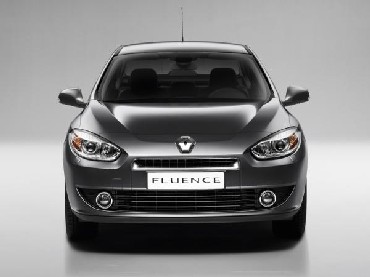
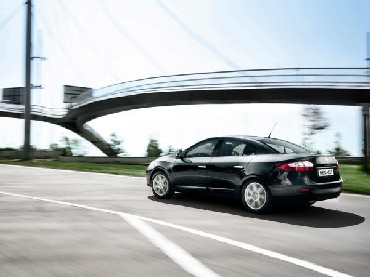
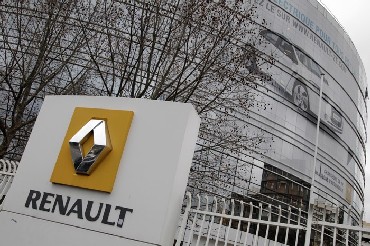
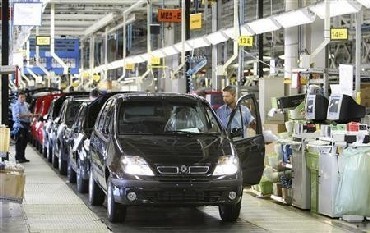
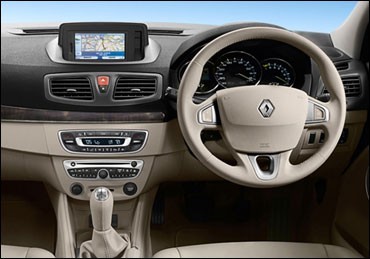
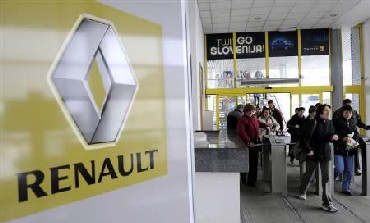
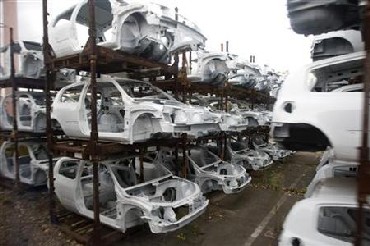

article